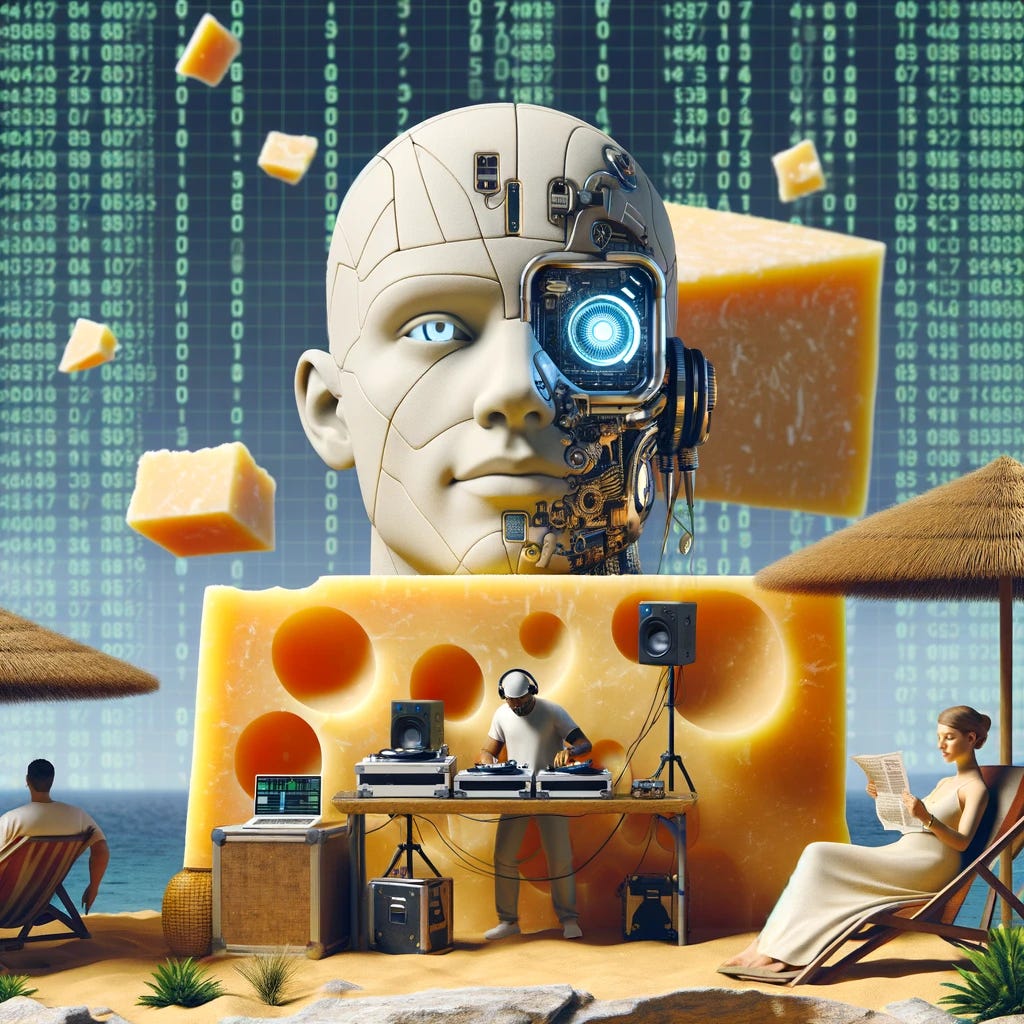Is AI already making this job redundant?
How sales roles are affected and what it means for other industries
I write Future Work/Life to help you build great teams and careers. If you find it interesting, please share it!
I've been at SaaStr Europa this week and the two days of presentations and conversations summed up everything that’s challenging and exciting about work right now.
Tight budgets and reduced headcounts tell the story of a challenging market.
Despite the short-term pain ahead, the new possibilities created by AI are genuinely exciting.
Guillaume Cabane’s talk was my highlight. The Hypergrowth Partners’ founder outlined how businesses are beginning to use AI to drive growth in new ways and what impact that will have on jobs. Specifically, he explored why the SDR (Sales Development Representative) role in SaaS (software-as-a-service) businesses is disappearing.
And while this was a technology conference and Cabane focused on sales and marketing, it’s not hard to see the parallels with other industries.
Sales minus SDRs
AI-driven automation is set to take over many tasks traditionally handled by SDRs.
Humans have, until now, remained an important factor in personalising the sales message to specific customers. That’s already changing. AI can now generate high volumes of high-quality leads, manage outreach, and nurture prospects. All currently the core responsibilities of SDRs. From scraping websites to, crucially, composing personalised emails, AI can now perform these tasks more efficiently and at a lower cost, ultimately rendering the SDR role obsolete
.This shift means organisations must rethink how they deploy human talent in their sales processes AND requires salespeople to adopt new skills
.
Specialism plus Entrepreneurship
Adaptability and the willingness to embrace new technologies are table stakes for those who want to continue to create value. Resistance is futile!
As AI takes over traditional tasks, the skill sets required in your job evolve. In this example, marketers and salespeople need to become more technically savvy and capable of leveraging AI tools to optimise their strategies and workflows. This shift demands continuous learning and a positive approach to integrating AI-driven solutions into everyday tasks.
Whichever industry and role you’re in, improving your industry knowledge and becoming more entrepreneurial – adaptable, experimental, proactive - will give you an advantage over those who close their eyes to what’s coming.
‘Real’ equals Premium
Not every customer dreams of interacting with a machine. Some will want a real human being and be willing to pay for it.
Combine what’s already possible using AI – platforms like Gong make real-time questions or objection handling suggestions, for instance – with an experienced, expert human, and you can create a ‘super salesperson’. Cabane described this as the “VIP treatment” in which a “certified human” represents a premium-tier service for those who want it (the equivalent of how you certify real Parmigiano Reggiano cheese but for enterprise SaaS – his suggestion, but I like it!)
In this case, AI augments how humans do their jobs. But take a step back and you can see how there’s an important place for real people in this new world of work.
As digital-only interactions become more universal, there’ll increasingly be a push for ‘real experiences’ with ‘real humans’. It’s already happening in other industries. I can immediately think of a few trends that I’m on board with ‘for example’:
The media and publishing industry has switched to digital content, but there’s increasing demand to hold the physical product again (same with music streaming vs vinyl).
Booking travel has become almost exclusively digital and automated, but concierge services remove friction from planning and offer bespoke, once-in-a-lifetime packages.
In the workplace, considered, high-value in-person experiences are now a differentiator for employers, helping attract the best talent and build a great culture.
The value of humans is not disappearing. But your offer – whether as an individual or as a business – will have to change to create significant value for the select group willing to pay the ‘human premium’.
Questions…
So, turning AI into a positive means embracing the change, being honest with yourself and asking these questions:
How will AI affect your industry and job role?
What parts of your job are likely to be automated away?
How can you take the initiative to carve out a high-value role for yourself in this emerging world of work?
More to come...
Ollie






